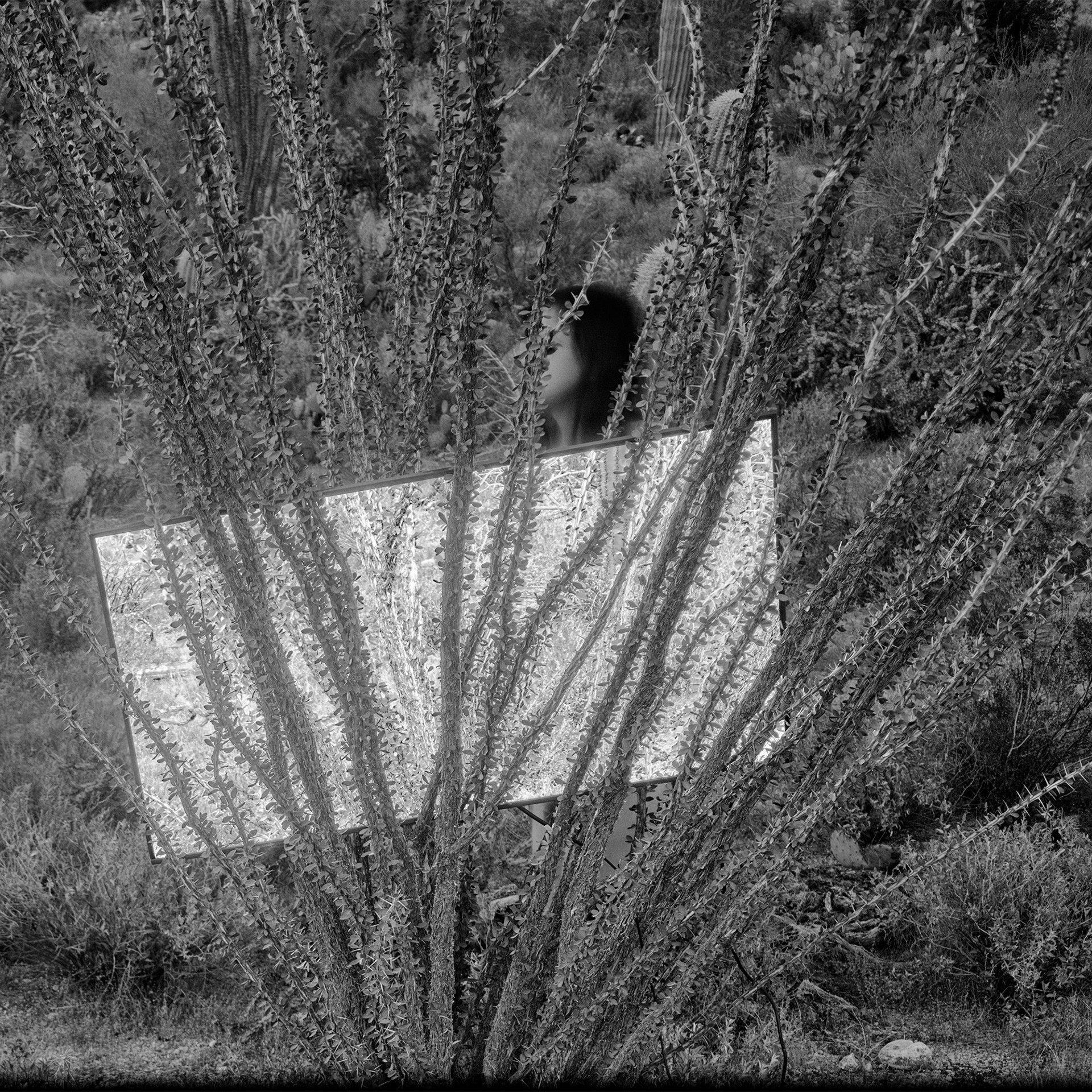




Through my images I am splitting perspectives apart—splitting my body apart— questioning the impossibility of fitting into the rigid frames projected upon me.My work examines the notion that a photograph serves as a window into a particular perspective and moment in time. Yet our perceptions of photographs can shift over time. I want to escape rigid categories of representation by drawing attention to the artifice of such frames.
Screens serve as an alternative to mirrors for self-reflection. They present an alluring yet dissociative vision, a way of avoiding the truth of how I, other trans people, perceive our own bodies and the world. Obsessing so much that the screen is more real than actual life becomes a manifestation of gender dysphoria. Looking at screens is my primary activity most days, a familiar method of interacting with the world. By physically interacting with screens I become absorbed in my own image—similar to individuals with their own screens conveying to them a different reality. I capture the complexity of contradictory perspectives that are a product of the proliferation of screens. The subsumption of queer identity through the screen may provide a possible way to depict how individuals can feel trapped by representations.
I use landscape photography to explore and to draw attention to the imposition of the frame on the land as part of the colonial construction of landscape. Landscape photography was and is used as an imperial tool to pillage the cultural heritage of indigenous peoples, and that kitschy representations make it possible to live happily amidst beautiful scenery on the site of a genocide. Calls for Native American reparations and rights are frequently couched in language that states that they have lived on the land “since time immemorial.” This concept of a land claim existing since “time immemorial” has its roots in medieval English law. Through this common law legal regime, reckoning with a genocide has been reduced to a medieval land dispute. I construct my own landscape to resist colonizing agents defining my identity. I use the screen as a technological phenomenon to create my own invented tradition thus drawing attention to the invented traditions of colonialism and capitalism.